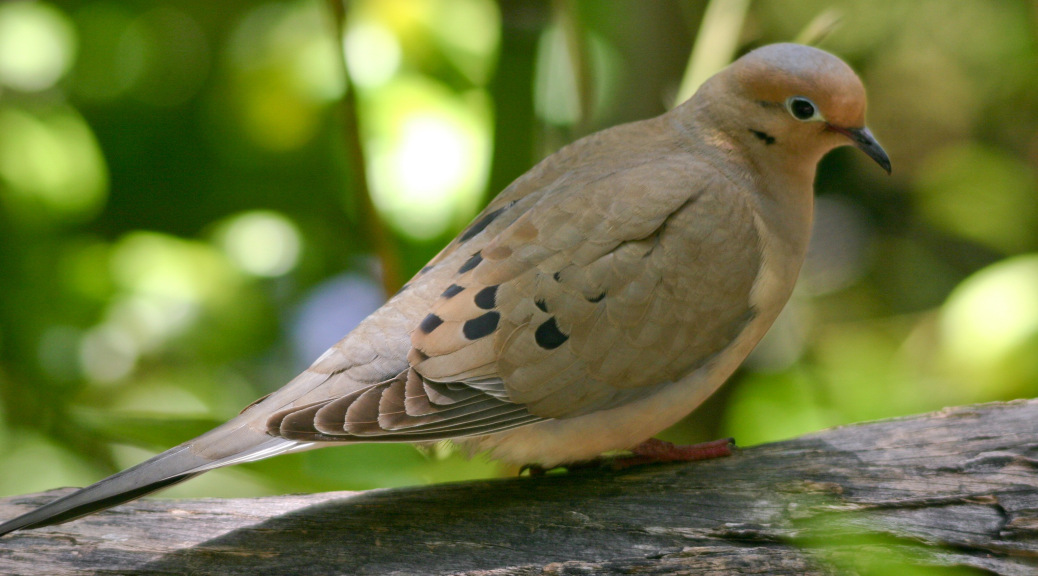
A Saturday First Dove Season Opener Will Generate Big Numbers

by CDFW
8-24-2018
Website
The first of two opening days of California’s dove hunting season is fast approaching. This year’s season for mourning dove, white-winged dove, spotted dove and ringed turtle dove will run from Saturday, Sept. 1 through Saturday, Sept. 15 statewide, followed by a second hunt period, Saturday, Nov. 10 through Monday, Dec. 24.
Mourning dove and white-winged dove have a daily bag limit if 15, up to 10 of which may be white-winged dove. The possession limit is triple the daily bag limit. There are no limits on spotted dove and ringed turtle dove. Hunting for Eurasian collared dove is legal year-round and there is no limit.
Please note that as of July 1, 2015, nonlead ammunition is required when hunting upland game birds on all California Department of Fish and Wildlife (CDFW) lands. Please plan accordingly. For more information please see the CDFW nonlead ammunition page,
A dove identification guide can be found on the CDFW website, along with a map of upland game fields in Imperial County, the state’s hub for dove hunting.
Following two years of increased precipitation in northern California, abundant forage and water availability has provided mourning doves with the basics for a productive nesting season. Early banding data show high numbers of hatch year birds reported around the state. Mourning doves are generally short-lived and can respond with high reproductive success given ideal habitat conditions. This, paired with a Saturday opening day, should draw many hopeful dove hunters to the fields.
Dove hunting is a great starting point for new hunters. There is very little equipment required and just about any place open for hunting will have mourning doves. Minimum requirements are a valid hunting license with upland game bird stamp (junior license holders are not required to have an upland game bird stamp) and Harvest Information Program (HIP) validation, good footwear, a shotgun, shotgun shells and plenty of water. Hunters should be careful not to underestimate the amount of fluids needed, especially during the first half of the season or when hunting in desert areas.
Many dove hunters like to position themselves in a known flyway for doves. Flyways can run to and from roost sites, water, food sources or gravel. Doves are usually taken by pass shooting along flyways, but hunters may also be successful jump shooting. Dove movement is most frequent in the early mornings and late evenings when they are flying from and to their roost sites (this is when the majority of hunters go into the field). Late morning to early afternoon can be better for jump shooting. Hunters should scout out dove activity in the area a few times just prior to hunting.
Important laws and regulations to be aware of include the following:
* Shoot time for doves is one half hour before sunrise to sunset.
* All hunters, including junior hunting license holders, are required to carry their hunting license with them.
* Hunters must have written permission from the landowner prior to hunting on private land.
* Bag limits apply to each hunter and no one can take more than one legal limit.
* It is illegal to shoot within 150 yards of an occupied dwelling.
* It is illegal to shoot from or across a public roadway.
* It is illegal to hunt within 200 yards of an artificial water source for wildlife.
It is the responsibility of every hunter to know and follow all laws, including identifying game species.
Safety is the most important part of any hunting adventure. Although wearing hunter orange (blaze) is not required by law, it may be required in specific areas. Wearing a minimum of a hunter orange hat is recommended, especially when sitting or when hunting in deep vegetation. Safety glasses are a simple way to protect the eyes and are available in many shades for hunting in all types of lighting situations.
The weather throughout the state on Sept. 1 is expected to be hot and dry. CDFW urges hunters to drink plenty of fluids, wear sun protection and have a plan in case of an accident.
Full dove hunting regulations can be found on CDFW’s website.
Website Hosting and Design provided by TECK.net